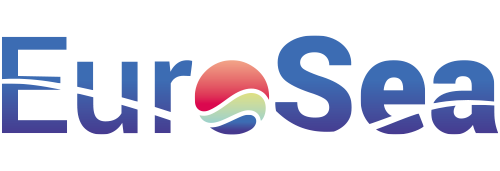
Description
The project aims to present a consolidated set of recommendations to the European Commission (EC) that address the broader legal frameworks concerning ocean observation. Recognizing the potential complexities and ambiguities within the existing legal structures, these recommendations seek to simplify, clarify, and enhance legal norms for better governance, implementation, and understanding. In doing so, they hope to ensure a more efficient and effective ocean observing infrastructure within Europe.
Impact During the Project
Recommendations and their Influence on European Commission: The recommendations put forth regarding the broader legal frameworks surrounding ocean observing indicate a significant step forward. By offering these recommendations, there is a focused effort to streamline, enhance, and clarify the legal aspects of ocean observation, which traditionally might have been fragmented or ambiguous.
Specific Measures include:
Downloads of the Report: The number of downloads serves as a primary quantitative measure, reflecting the interest, relevance, and potential significance of the report within the relevant communities and among policymakers.
Report References: By tracking how often the report and its recommendations are referenced, we gauge its influence, utility, and importance in discussions, decisions, and further studies within the field.
Direct Feedback from the European Commission: Feedback from the EC provides a qualitative understanding of the report’s alignment with the Commission’s objectives, its usability, and potential areas of improvement or consideration.
Feedback from Other Stakeholders: Gathering insights from other stakeholders, outside of the EC, offers a more comprehensive view of the report’s broader relevance, applicability, and potential areas where it can be beneficial.
Impact Post Project
Sustained Interest: Continuous monitoring of report downloads post-project indicates the lasting relevance and interest in the recommendations.
Ongoing References: Regular referencing of the report signifies its enduring importance and influence in shaping legal frameworks and policies related to ocean observing.
Feedback from the European Commission: Continuous feedback from the EC post-project helps understand how the recommendations have been assimilated, acted upon, or incorporated into their strategies.
Feedback from Other Stakeholders: Continual engagement with stakeholders ensures that the recommendations remain relevant and can be iterated upon based on real-world feedback and changing scenarios.
Advancement over and above State of the Art
Traditionally, legal frameworks related to ocean observing might have been established with reactive measures, sporadic updates, or without a comprehensive understanding of evolving ocean observing technologies and their implications.
Proactive Legal Recommendations: By providing a set of well-researched and thought-out recommendations, there is a shift from a piecemeal approach to a proactive and comprehensive strategy for legal frameworks.
Stakeholder-Centric Approach: Gathering feedback not just from the EC but also from various stakeholders ensures the recommendations are holistic, considering diverse perspectives and potential use-cases.
Benchmarking Through Tangible Metrics: Metrics like downloads, references, and feedback provide clear indicators of the report’s significance, allowing for an objective evaluation of its influence.
In essence, the recommendations for the European Commission concerning legal frameworks for ocean observing represent a transformative advancement. They encapsulate a more holistic, forward-thinking, and inclusive approach, setting a new benchmark in how legalities in the domain of ocean observation are addressed and evolved.
Links and References
Link to D1.7 – Report on legal frameworks for OOSS: https://eurosea.eu/download/eurosea_d1-7_report_on_the_use_of_legal_frameworks_for_ocean_observing_systems/?wpdmdl=5510&refresh=650197c47e58e1694603204
